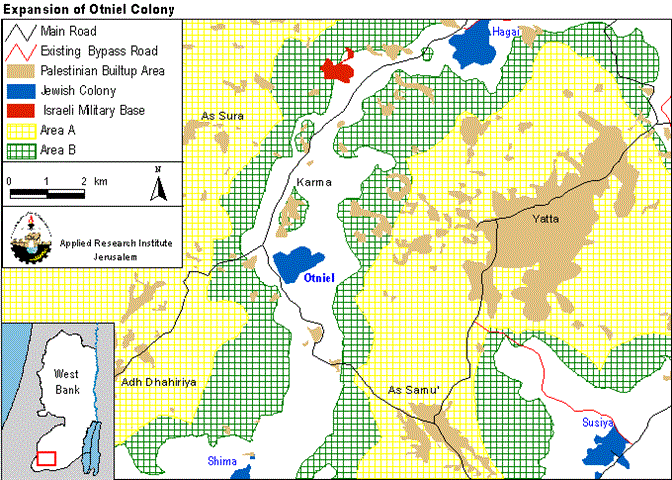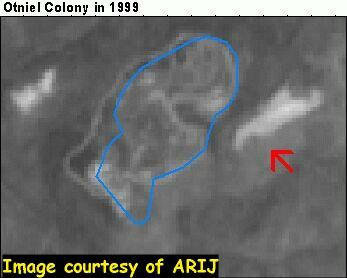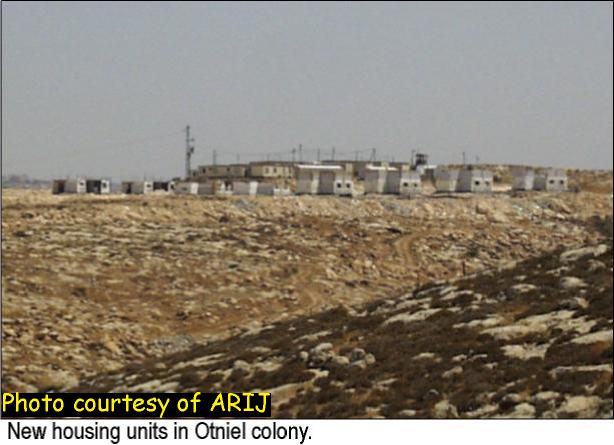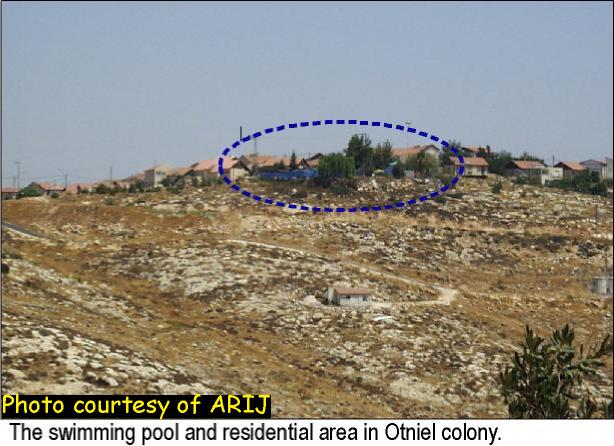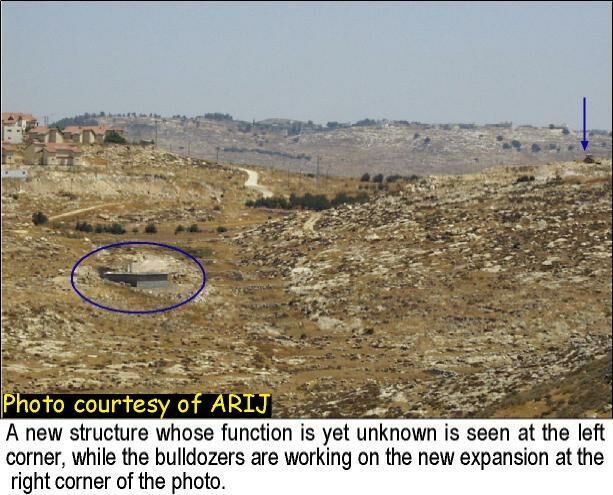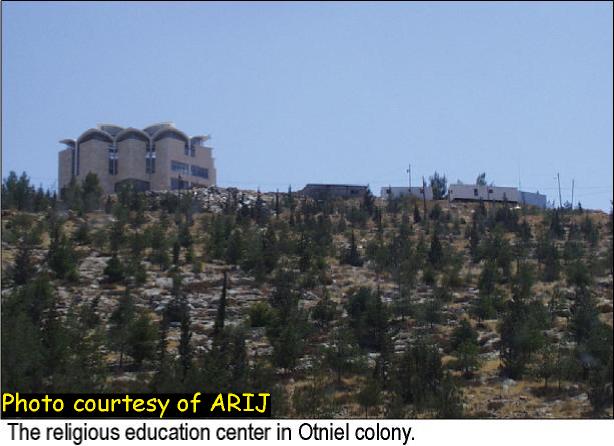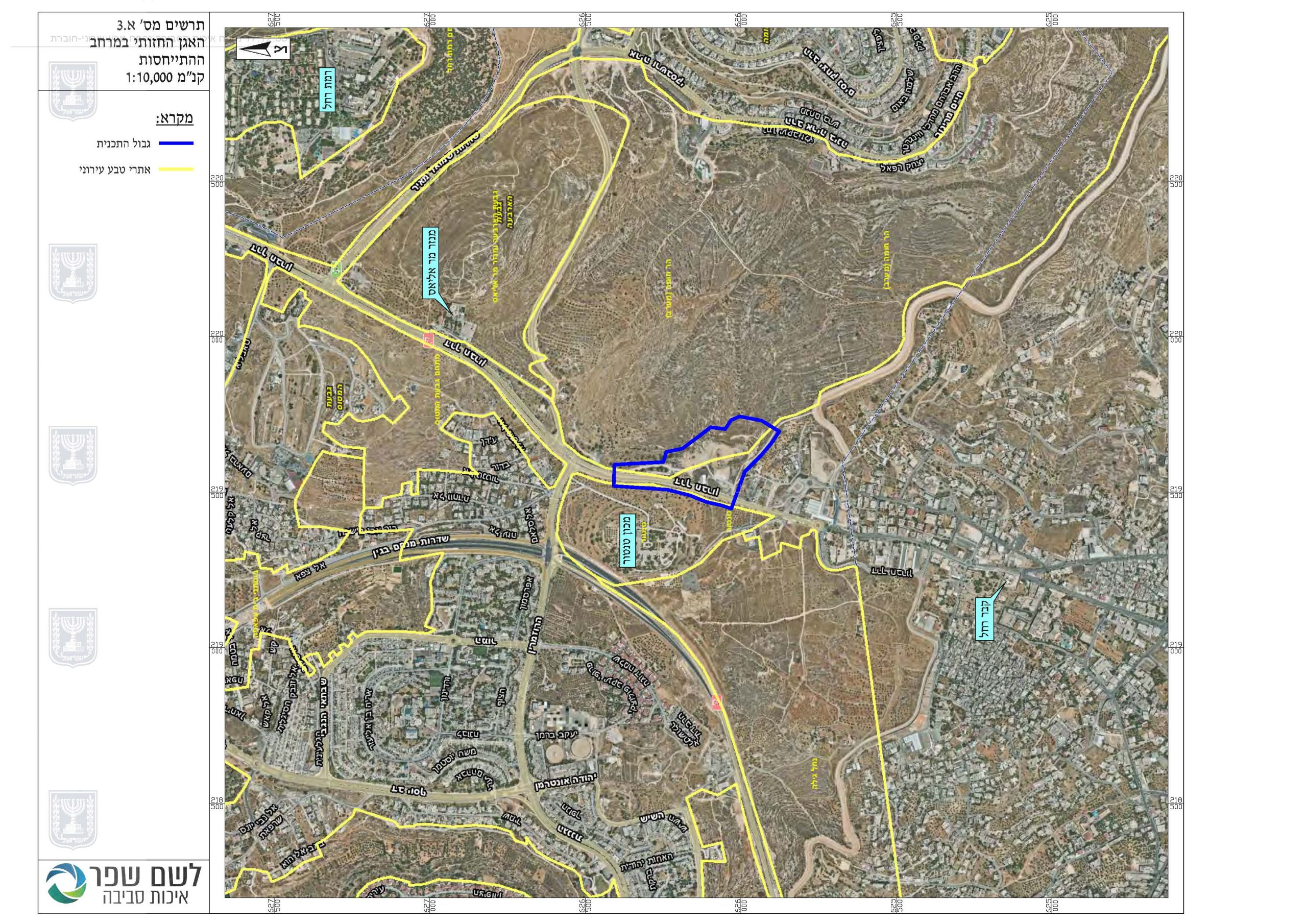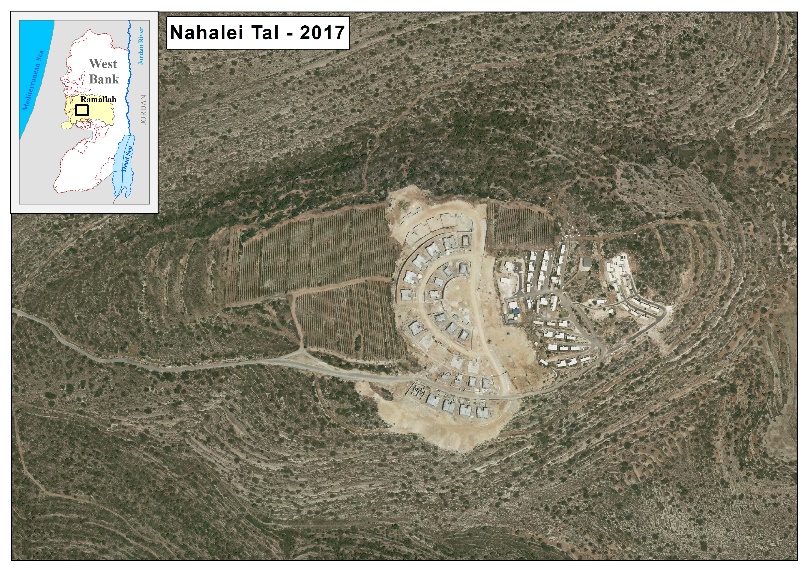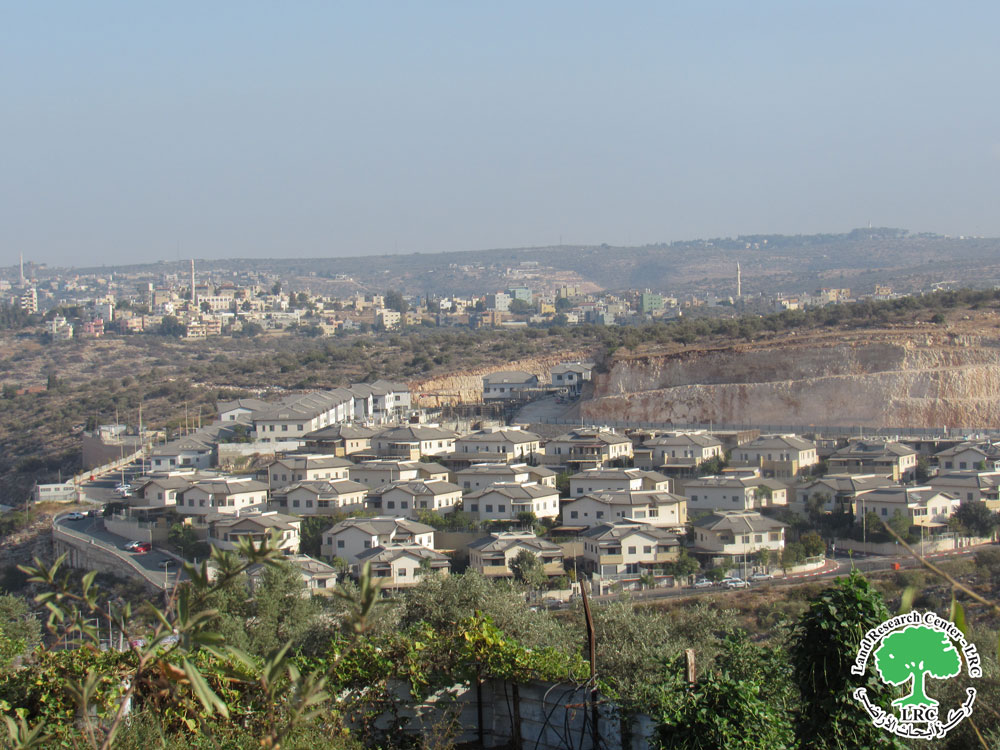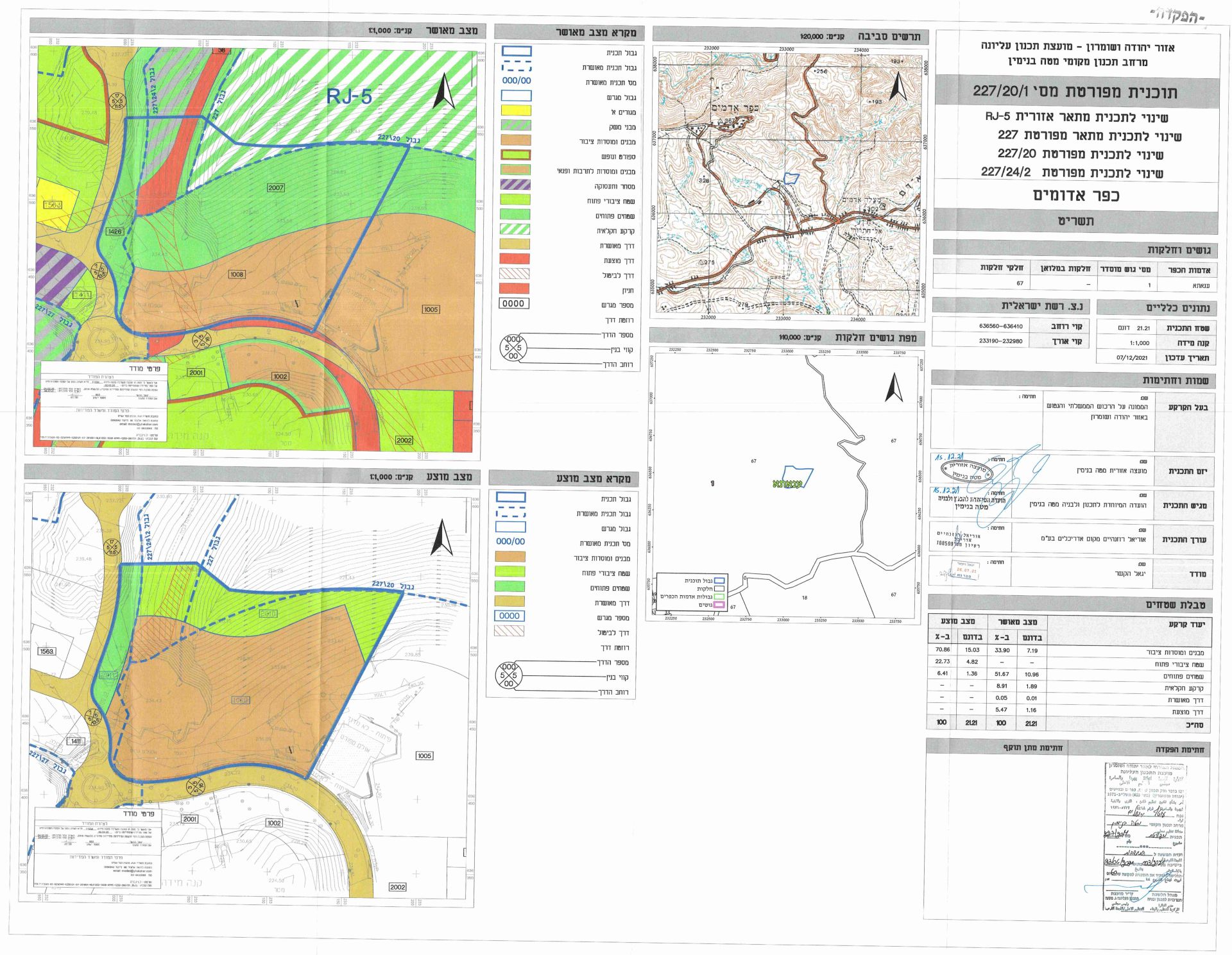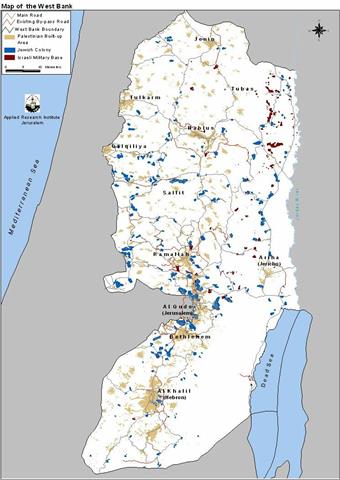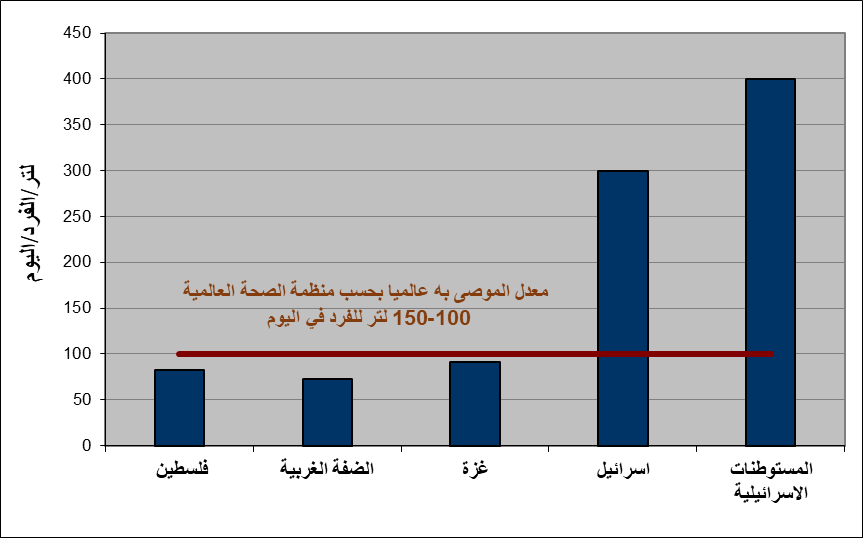The settlement of Otniel was established in 1983 when Likud was in power under Prime Minister Yitzhak Shamir. It is situated on a mountaintop some 3 kilometers west of the town of Yatta in southern part of Hebron district (see map). The area around Otniel is used by the Yatta villagers for rain fed farming. The direct surroundings of the settlement are designated as a closed military area. When one looks at the settlement one sees two parts, one civilian and one military. The military part has recently been expanded and there are signs that it will be transformed into a civilian area. If this turns out to be true it is another example of the misleading character of the term closed military area. Satellite images from 1996 and 1999 show a clear difference in the eastern part of the settlement. While the 1996 image shows only a small block of caravans, the 1999 images reveal part of the land being leveled (see images 1&2). Pictures taken by the ARIJ fieldworkers in July 2000 show housing construction on this side (see photo).).
Looking at the mountain one notices the dry surroundings and Bedouin livelihoods in the valley. On top of the hill, on the western corner of the settlement, a religious education center towers over the land. East of it lies the urban section, with a swimming pool for recreation purposes and waste water tanks halfway down the hill. Below it a new building is constructed, for what purpose is not clear. (see photos 1&2)
For the villagers of Yatta this settlement must be a hard fact of life, not only because of Israeli presence just around the corner but for a few other reasons as well. First, there is a huge water shortage all over the West Bank, but especially in the Hebron district. It is estimated that the experienced shortage is three times the amount of water supplied by the Israeli water company, Mekorot, the monopolist on water in the West Bank as well as in Israel proper. Israeli settlements on the West Bank are supplied with sufficient water during the entire year, even an increase in the summer. For example, the average annual water consumption per capita in a settlement is between 650 and 1,714 CM in contrast to 107 to 156 CM in Palestinian areas. To see a swimming pool here, above the dry land must be a bitter experience for a Palestinian. Second, the land used by villagers for rain-fed farming suffers from pollution caused among others by sewage and wastewater from Israeli settlements. The two big water tanks halfway the hill are no indication that this settlement will be an exception.
Why is this settlement expanding, situated in an isolated position in the middle of Hebron district? However illegal all the settlements in the West Bank are (as international agreements clearly show) in most cases one can see strategic significance of the location. For example, settlements close to the 1949 Armistice Line are part of realizing the Allon plan, while settlements around Jerusalem are part of the project to establish a greater Jerusalem. Other settlements on isolated locations in the West Bank are also of strategic importance. They are to prevent or disrupt, with the network of bypass roads, the unity of the West Bank. In the case of Otniel, it separates two big blocks of area A in Hebron district (see map). Another reason for the existence of this settlement is shown by its biggest and probably most expensive building: the religious education center (see photo). But why do they want to expand it at such a delicate moment in time when the Palestinian and Israeli leaders are talking about peace? Maybe they want to grab all the land possible before an agreement is reached. Maybe one can find an answer on Otniel website www.internadlan.com/amana/otniel/index.htm .To get a clear answer on the ''why?'' question one should probably contact the Yesha council (the organization that manages the settlements in the West Bank and Gaza, www.yesha.org), but the reason they will give you will never correspond with the international and bilateral agreements signed.
Prepared by:
The Applied Research Institute – Jerusalem


